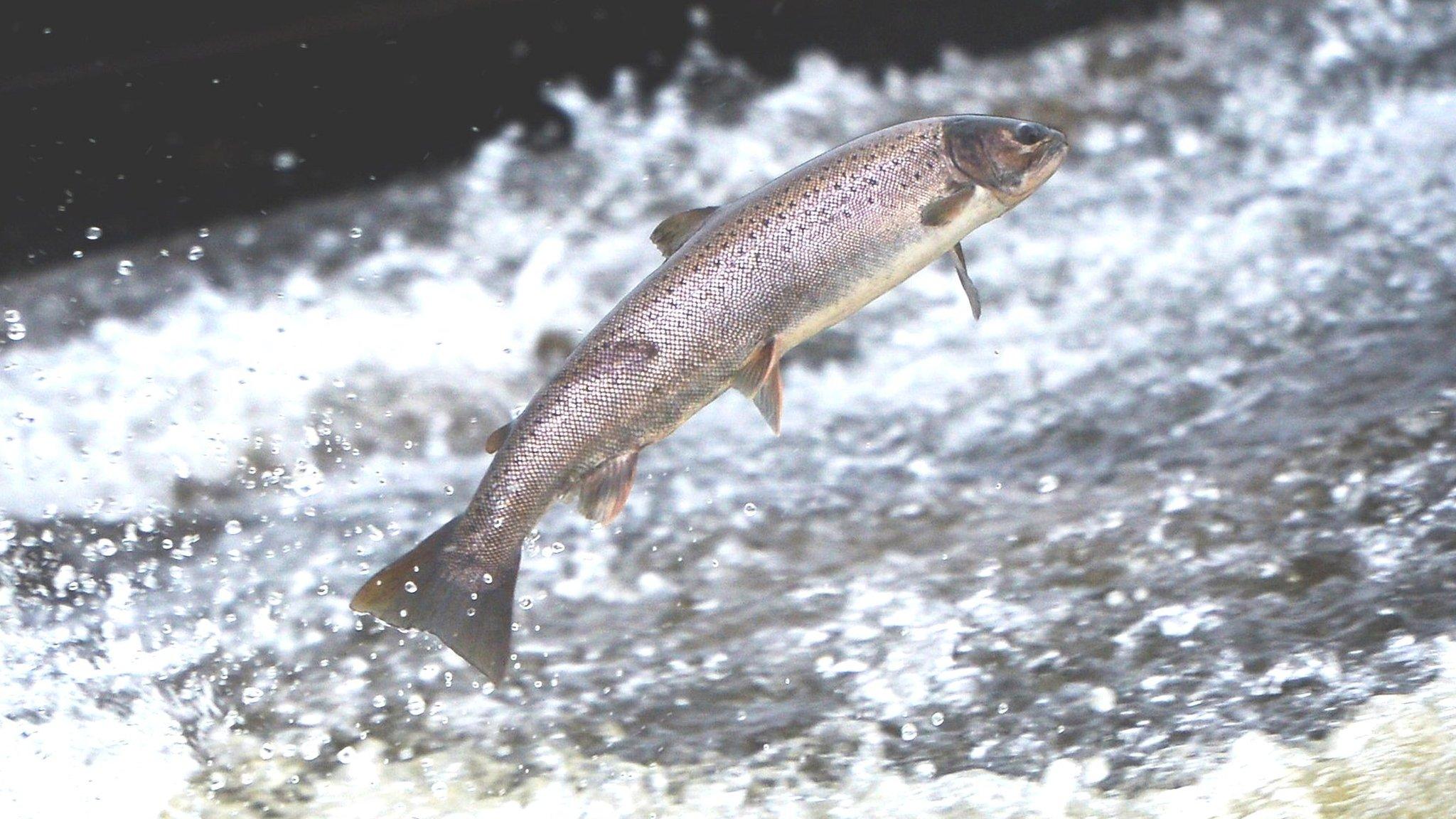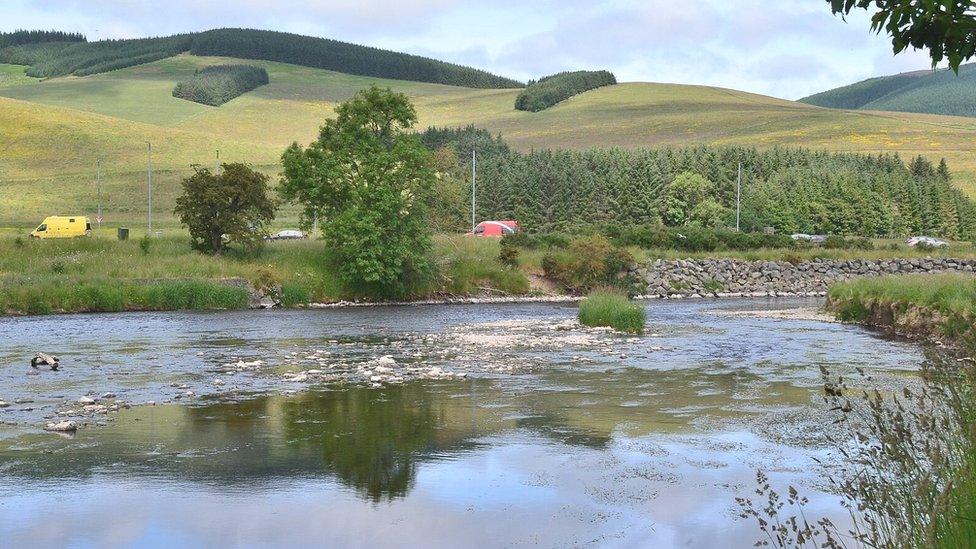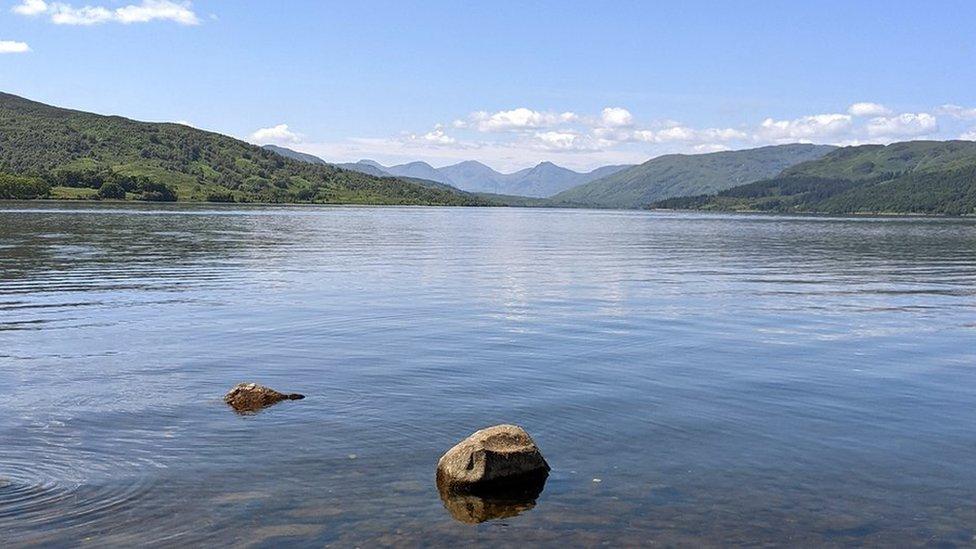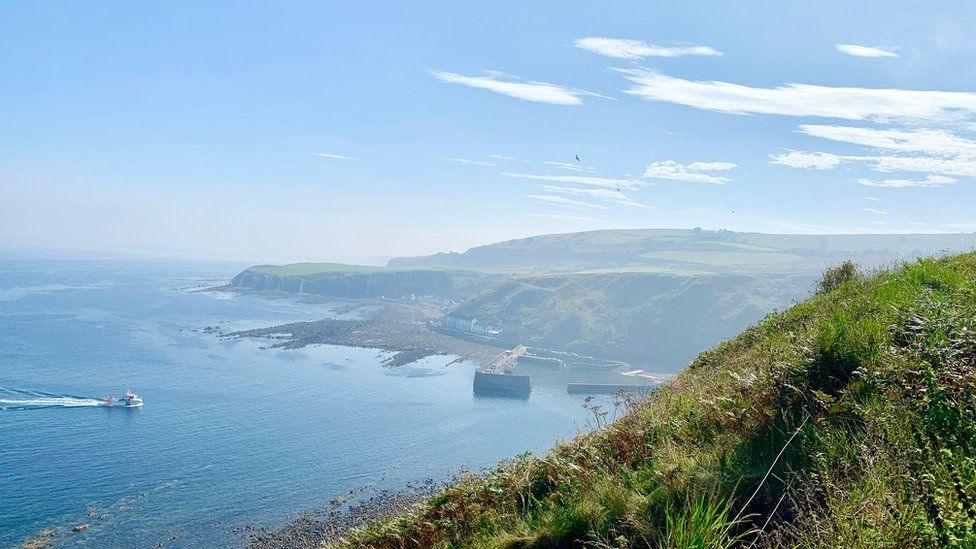River Tweed fish stock concerns grow amid low water levels
- Published

The River Tweed Commission fears current water scarcity plans are not adequate to protect stocks
The River Tweed Commission (RTC) has warned current water scarcity plans are inadequate to protect its fish stocks.
It is concerned at the "significant problems" being created by low water levels and high temperatures on Atlantic salmon, sea and brown trout.
The group wants a review of the system still allowing water extraction from the river by industry and agriculture.
The Scottish government said it worked closely with experts to decide what actions to take to tackle scarcity.
There have been a series of water scarcity warnings from the Scottish Environment Protection Agency (Sepa) so far this year with the east of the country more badly affected than the west.
Clerk to the RTC, Jamie Stewart, said the prolonged dry period was causing concerns along the river and its tributaries in the Scottish Borders and beyond.

A moderate scarcity rating means water extraction can continue on the River Tweed
He added: "Migration between river pools in the catchment becomes much more difficult, with access to shade and protection from predators often denied as a result.
"In addition, low river levels cause changes to the nutrient concentration levels in the water, which are leading to greater areas of algal bloom on the riverbed.
"Warm water holds less dissolved oxygen than cold water, so summer is the time when fish can have a hard time getting enough oxygen."
Mr Stewart questioned the suitability of the system currently in place with the river's "moderate" scarcity classification meaning water abstraction for agriculture and industry were still allowed.
However, he said the past two years had seen the Borders record Scotland's hottest day on record along with higher average temperatures and low river flows due to climate change.
He also said he did not believe the current system was adequate to support the river environment.
The Scottish government said it had been working with Sepa in dealing with water scarcity issues across the country.
A spokesman added: "We will continue to closely monitor the situation, evaluate the potential environmental, economic and social impacts and consider advice from Sepa and scientific bodies before determining what actions to take.
"The Scottish government takes the issue of our declining salmon stocks very seriously and we are working with stakeholders to safeguard this iconic species."
It said its wild salmon strategy - launched at the start of the year - also set out objectives to ensure the protection and recovery of populations.
Sepa's head of water and planning, Nathan Critchlow-Watton, said its plans had been developed to protect the environment following public consultation.
He said the Tweed was likely to reach significant scarcity in the coming days at which point it could suspend abstraction licences for businesses.
- Published5 August 2022

- Published28 July 2022
